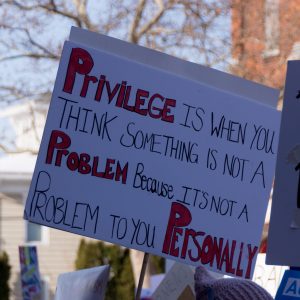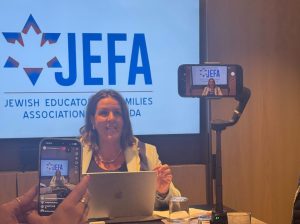 TORONTO — Negotiations are still going on between an unnamed Jewish day school and a small committee of high-level lay leaders and staff of UJA Federation of Greater Toronto and its Centre for Enhancement of Jewish Education (formerly the Board of Jewish Education, now known informally as the Mercaz) to determine the fate of students at She’arim.
TORONTO — Negotiations are still going on between an unnamed Jewish day school and a small committee of high-level lay leaders and staff of UJA Federation of Greater Toronto and its Centre for Enhancement of Jewish Education (formerly the Board of Jewish Education, now known informally as the Mercaz) to determine the fate of students at She’arim.
The 27-year-old school – formally known as the Dr. Abraham Shore She’arim Hebrew Day School, Sara and Sam Hennick Education Centre – is housed at the Bathurst Jewish Community Centre and serves 75 students from Grade 1 through Grade 8 with learning disabilities, attention deficit hyperactivity disorder and mild forms of autism.
Twenty-five students will graduate this year, leaving 50 who are not yet sure where they will be in September, after a March 12 meeting when school co-president Sidney Braun announced that the school was no longer financially viable in its current format.
Under the new arrangements, students would be in a separate program that would address their special needs under the auspices of an existing school.
“We’re in the midst of very sensitive negotiations,” said Howard English, the federation’s spokesperson and vice-president of corporate communications.
“We hope they’ll conclude very shortly,” he said, adding that both parties understand the need to come to terms soon.
However, a small group of parents is still trying to turn things around, and an open meeting – to let the community know “what the school is about” and that there’s a “severe need” for it – has been planned for this Thursday, April 3, at 7:30 p.m. at Shaarei Shomayim Congregation, said organizer Ellen Frischman-Snyder.
Rabbi Joseph Kelman, a She’arim founder who will speak at the meeting, told The CJN that keeping the school open for another year would “at least give the other [Jewish] schools a chance to develop a program” for current She’arim students.
In the event the plans with an existing day school don’t work out, Frischman-Snyder said she and other parents have started to make inquiries about enrolling their children individually at other schools.
“Parents are being turned down,” she said. “Everyone is looking at our children as a group.”
“It is a horrible, disastrous situation that the school is closing,” Frischman-Snyder added. “If there is no plan in place, these are kids that are going to be lost into the public school system and denied a Jewish education.”
Eric Golombek, TOP RIGHT, principal of Associated Hebrew Schools’ Posluns Education Centre on Neptune Drive, said that “no one has really been told yes or no” about being accepted at the school.
“We’d be happy to meet with [anyone applying to Associated] to consider what the child’s learning needs are.”
However, Golombek said that any new students, regardless of whether or not they come from She’arim would be accepted “if [they fit] within the services we can provide… We’re not going to shortchange any children.”
Merle Langbord Levine – a former Jewish day school teacher, and the founder and educational director of the Merle Levine Academy, a private special education school serving students from Grade 2 through high school – is adamant that the federation’s plan to accommodate She’arim students in a separate program within an existing school won’t work.
“Absolutely not,” she said. “Socially, the child is considered different.”
Langbord Levine, who has no affiliation with She’arim, said she felt “very badly” when she heard about its imminent closing. “It does do a service for the community, however it’s a business, and it has to be run that way.”
Annual tuition at her school is in the $22,000 range, about $4,000 more than at She’arim, and Langbord Levine said she “barely break[s] even.”
Sam Hennick, a major funder of She’arim for the past eight years, said he was upset but not surprised to hear the school would be closing.
Hennick said he has a fund at the federation’s Jewish Foundation, whose proceeds help She’arim. “I made it clear to UJA that only I can direct that fund… If the school closes, and another one isn’t started up, I would look around for a worthwhile charity, probably in the same area of school funding and maybe direct some of the money there, or maybe keep some back and hope that somebody starts a She’arim.”
She’arim, however, is his first choice, he said. “If it continues,” he added.






